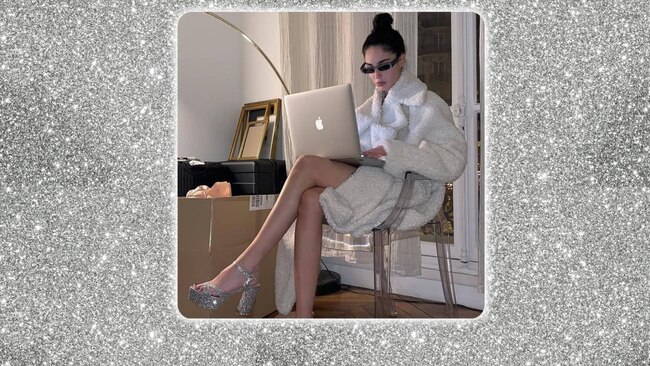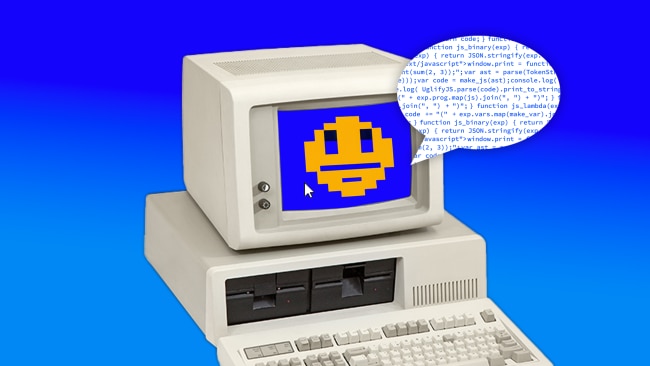Generation WFH enters the office
Five graduates who started their first jobs online open up about logging off and leaning in.

Five graduates who started their first jobs online open up about logging off and leaning in.
Having started their careers when WFH was considered a sick day in disguise, Boomers and Millennials took to the internet to air their frustrations about things like homeschooling, getting access to the remote server and, most importantly, Zoom etiquette.
But while those guys are comfortably back in the office, making up for two years of lost water cooler chat, a new generation of workers is experiencing the inverse of the WFH migration.
They started their first jobs during Covid, online.
And now, after being introduced to the concept of work while wearing pyjama pants, they’re entering the office and learning how to work there, in the company of actual colleagues, for the very first time.
Weird vibes.
For some, this transition has been easy. The lack of social contact that came with working from home was tough, and even though the commute is exhausting, it’s less depressing than going from bed to desk. But for others, learning how to work in an office environment has involved re-learning how to work altogether.
For example: If you’ve gone from a quiet home office to an open-plan office, you’ve probably realised you’re expected to get stuff done while being distracted by your colleagues. The moment someone mentions Love Island? There goes the next half hour of productivity.
But beneath the obvious things — like the anxiety of choosing outside clothes every day — there are other nuances and grievances about un-learning to work from home that are unique to this new generation of workers. Here, five of them share their stories, their stressors, and their hopes for the future.
Sophie, 25, State government Stakeholder relations and communications graduate
“In some ways, I think I was lucky to start my job when I did, because the organisation already had a year of WFH under its belt and processes were established. The hardest part was trying to meet people and network. There are only so many 'nice to e-meet you’ messages a gal can write. Scheduling a quick coffee on Teams feels way more forced and conversations don’t flow as well — major interview vibes. Thankfully, my workplace was great at organising virtual social events. Once I realised I had to lean into the cringe, they were an effective way of meeting people.
Working for the government means the transition into the office has been pretty relaxed, as we were given a good amount of forewarning. Personally, I love going into the office. I finally feel like the rent I’m paying in Richmond is worth it, as my commute only takes 17-minutes door to door. That being said, I come home feeling pretty exhausted and have no idea how people do five full days in the office.
My setup is flexible, and I’m split between working at home and in the office right now. I sympathise with people in my situation who have been pushed into five days’ office time — it would be a struggle having had a taste of the sweet life. The best thing about working from home is getting the life admin done, whether it’s emptying the dishwasher, doing the washing or going for a run at lunch. I don’t know how I would get that stuff done if I was in the office five days a week. It would suck to be stuck doing that stuff on the weekends, which are such a precious commodity.
It’s bizarre going on Instagram at the moment - half my feed seems to be getting married and buying houses, while the other half is still spending their pay on nights out. But I’ve definitely felt a shift among my friends recently, and people are looking more towards the future. We’re worried about house prices and how we’ll ever break into the market. Compounding this is the fact there’s such a big discrepancy between the salaries of my friends, and the amount of help received from their parents, so it can be hard for people to see those ‘I did a thing’ posts on Insta.
As for where I see myself in 10 years’ time… Fingers crossed I’ll be settled down with a cute fam, partner and accomplished career, having felt like I’ve really lived for myself, which includes a stint overseas. That being said, I won’t ever give up my career and hope to keep climbing the ranks.”
James, 22, Senior Banking Consultant
“I started my first job, which was as a junior accountant for a finance group, a few weeks before Melbourne went into its longest lockdown. I only met about half the staff before I had to start working from home, which was mostly challenging when I got stuck on a task, because the only communication was over the phone, and team-building was hard because you’d only really speak to people when you needed help.
The sense of teamwork and camaraderie is much better working from the office, it feels like we’re working together to achieve a goal rather than just working to earn a pay check.
Overall, working from the office has been much better for my motivation, skill-building, and mental health.
I do miss the sleep in and ease of figuring out what to eat for lunch. Also, I feel like I’m more productive at home because there are way fewer distractions — being alone all day allows you to really focus on the work you need to complete.
When it comes to work, money and the economy, I’m not too concerned about anything specifically, as I’m quite a strong capitalist and I believe in allowing a free market to prevail, which generally allows things to work out naturally. What is most concerning to me is the lack of free speech right now. People our age should be able to have discussions around what is the best solution, rather than choosing the solution which is most marketable.”
Amelia, 21, Graduate intern
“I work at a global dairy and beef genetics company, which is the first job I’ve had that aligns with my studies and career aspirations in agriculture AI. I started over Zoom, and I was pretty determined to be an active member of the workplace in order to learn as much as I could about the industry and build my skill set. This was made challenging by the pandemic — I felt like doing everything on Zoom limited the number of opportunities I had to get the most out of everything.
Physically, it’s been quite exhausting going back into the office full-time, particularly when it feels like you can be just as (and if not more) efficient doing the same work from home.
I do miss the unique work-life balance that comes from working from home.
You can integrate household chores into your day, especially during the time you save not commuting to and from the office — it alleviates a lot of the stress I feel when there’s no time to do anything around the house after a long day at the office.
Work and money don’t worry me too much, as I truly believe in finding work in the field you’re most passionate about, and money will simply follow. I probably worry about buying a house the most. It’s scary to think that even the money I’m putting away into savings might not be enough to purchase a property. After I’ve reached my dream career milestones and visited all of the places in the world that are on my bucket list, I hope to settle down and start a family, living in a house somewhere rural… that I own."
Nicholas, 21, Legal research assistant
“I’m going to be weird and say that starting my job on Zoom wasn’t that challenging. By that point I’d spent one and a half years studying remotely due to the pandemic, so I’d gotten used to staying at home and doing work. Maybe the biggest challenge was that it didn’t feel like I was actually working. It felt a bit like a simulation – I would get a phone call in the morning, or an email with instructions, and then I would get to work.
Adjusting to life in the office has been relatively simple. Going into the office makes work feel a bit more real. Most of my friends are working in the city too, so to finally go in feels like checking an experience off, like, I’m doing what all students are meant to do at some point. In some ways the office environment is good because it makes me more productive – I’ve travelled all this way to come to work, so I need to buckle in.
I still work from home if I can – the barrister I work for is very accommodating. Sometimes I have to go into the office to review physical documents, other days I just go in to change it up.
Even if I had the ability to know where I’m going to be in 10 years’ time, I don’t think I’d want to know. I’m a believer in predestination, so if forks in the road arise, whatever decision I make will be what it is, even though it might not be ‘good’ or ‘right’ in retrospect. Right now, I want to be a lawyer, but circumstances could change, or I might be offered an opportunity that sounds exciting in a different field. I could regret it, but maybe regret was the whole point of it all.”
Natalie, 22, Communications and engagement assistant
“My job is a research translation role, which involves working alongside academics and turning their work into layman’s literature, education and events. My entire interview process and on-boarding were completed online; to be honest, I felt like this reduced the stress usually associated with the daunting interview process because the meeting was perfectly on time, I wasn’t in an intimidating and unfamiliar environment and I could be judged entirely on my preparation, knowledge and answers, nothing else.
I loved the independence of working from home, but I think it made it harder for my new employers to get a feel for my abilities — sometimes the only points of contact were at the beginning and end of a task, with no collaboration in between.
I live quite close to my office, yet I find going in such an inconvenience. My gym routine in the morning is rushed, I miss the tram because I’m always running late, I arrive at work feeling flustered and then there’s the obligation to engage in office chit chat before actually starting work a good half-hour late.
What I don’t like about the office is feeling as though my productivity is at the discretion of others around me.
If my boss wants to chat, I can expect to put my tools down for 20 minutes. If the girls are going for coffee, I feel like I should join them so I’m not seen as being antisocial. If someone’s having tech issues, it’s usually always me or another Gen-Z member of the team who’s asked to help, because we know tech best.
Now that I’m working from an office, I miss being able to schedule my day knowing what I can get done, and to what timelines. I like being in charge of when I take breaks, when I reply to queries from coworkers, and what pyjama pants I wear. Just kidding. I do enjoy dressing up, but I also really enjoy pyjama pants.
What am I most stressed about? Definitely being able to maintain and afford my social life. On the other side of Melbourne lockdowns, there’s definitely this mentality that we need to make up for the years of social events we’ve lost — especially 21sts — and that shit’s expensive to sustain. Birthdays and brunches in this economy — that’s what I’m most concerned about.”



